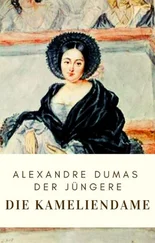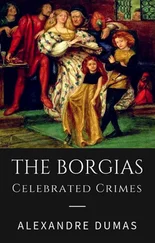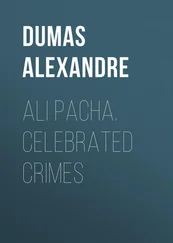Alexandre Dumas - Celebrated Crimes (Complete)
Здесь есть возможность читать онлайн «Alexandre Dumas - Celebrated Crimes (Complete)» — ознакомительный отрывок электронной книги совершенно бесплатно, а после прочтения отрывка купить полную версию. В некоторых случаях можно слушать аудио, скачать через торрент в формате fb2 и присутствует краткое содержание. Жанр: literature_19, foreign_antique, foreign_prose, на английском языке. Описание произведения, (предисловие) а так же отзывы посетителей доступны на портале библиотеки ЛибКат.
- Название:Celebrated Crimes (Complete)
- Автор:
- Жанр:
- Год:неизвестен
- ISBN:нет данных
- Рейтинг книги:3 / 5. Голосов: 1
-
Избранное:Добавить в избранное
- Отзывы:
-
Ваша оценка:
- 60
- 1
- 2
- 3
- 4
- 5
Celebrated Crimes (Complete): краткое содержание, описание и аннотация
Предлагаем к чтению аннотацию, описание, краткое содержание или предисловие (зависит от того, что написал сам автор книги «Celebrated Crimes (Complete)»). Если вы не нашли необходимую информацию о книге — напишите в комментариях, мы постараемся отыскать её.
Celebrated Crimes (Complete) — читать онлайн ознакомительный отрывок
Ниже представлен текст книги, разбитый по страницам. Система сохранения места последней прочитанной страницы, позволяет с удобством читать онлайн бесплатно книгу «Celebrated Crimes (Complete)», без необходимости каждый раз заново искать на чём Вы остановились. Поставьте закладку, и сможете в любой момент перейти на страницу, на которой закончили чтение.
Интервал:
Закладка:
Thus, one may see that Ferdinand judged Alexander VI with his usual perspicacity; this, however, did not hinder him, as we shall soon perceive, from being the first to contract an alliance with him.
The duchy of Milan belonged nominally to John Galeazzo, grandson of Francesco Sforza, who had seized it by violence on the 26th of February, 1450, and bequeathed it to his son, Galeazzo Maria, father of the young prince now reigning; we say nominally, because the real master of the Milanese was at this period not the legitimate heir who was supposed to possess it, but his uncle Ludovico, surnamed 'il Moro', because of the mulberry tree which he bore in his arms. After being exiled with his two brothers, Philip who died of poison in 1479, and Ascanio who became the cardinal, he returned to Milan some days after the assassination of Galeazzo Maria, which took place on the 26th of December 1476, in St. Stephen's Church, and assumed the regency for the young duke, who at that time was only eight years old. From now onward, even after his nephew had reached the age of two-and-twenty, Ludovico continued to rule, and according to all probabilities was destined to rule a long time yet; for, some days after the poor young man had shown a desire to take the reins himself, he had fallen sick, and it was said, and not in a whisper, that he had taken one of those slow but mortal poisons of which princes made so frequent a use at this period, that, even when a malady was natural, a cause was always sought connected with some great man's interests. However it may have been, Ludovico had relegated his nephew, now too weak to busy himself henceforward with the affairs of his duchy, to the castle of Pavia, where he lay and languished under the eyes of his wife Isabella, daughter of King Ferdinand of Naples.
As to Ludovico, he was an ambitious man, full of courage and astuteness, familiar with the sword and with poison, which he used alternately, according to the occasion, without feeling any repugnance or any predilection for either of them; but quite decided to be his nephew's heir whether he died or lived.
Florence, although she had preserved the name of a republic, had little by little lost all her liberties, and belonged in fact, if not by right, to Piero dei Medici, to whom she had been bequeathed as a paternal legacy by Lorenzo, as we have seen, at the risk of his soul's salvation.
The son, unfortunately, was far from having the genius of his father: he was handsome, it is true, whereas Lorenzo, on the contrary, was remarkably ugly; he had an agreeable, musical voice, whereas Lorenzo had always spoken through his nose; he was instructed in Latin and Greek, his conversation was pleasant and easy, and he improvised verses almost as well as the so-called Magnificent; but he was both ignorant of political affairs and haughtily insolent in his behaviour to those who had made them their study. Added to this, he was an ardent lover of pleasure, passionately addicted to women, incessantly occupied with bodily exercises that should make him shine in their eyes, above all with tennis, a game at which he very highly excelled: he promised himself that, when the period of mourning was fast, he would occupy the attention not only of Florence but of the whole of Italy, by the splendour of his courts and the renown of his fetes. Piero dei Medici had at any rate formed this plan; but Heaven decreed otherwise.
As to the most serene republic of Venice, whose doge was Agostino Barbarigo, she had attained, at the time we have reached, to her highest degree of power and splendour. From Cadiz to the Palus Maeotis, there was no port that was not open to her thousand ships; she possessed in Italy, beyond the coastline of the canals and the ancient duchy of Venice, the provinces of Bergamo, Brescia, Crema, Verona, Vicenza, and Padua; she owned the marches of Treviso, which comprehend the districts of Feltre, Belluno, Cadore, Polesella of Rovigo, and the principality of Ravenna; she also owned the Friuli, except Aquileia; Istria, except Trieste; she owned, on the east side of the Gulf, Zara, Spalatra, and the shore of Albania; in the Ionian Sea, the islands of Zante and Corfu; in Greece, Lepanto and Patras; in the Morea, Morone, Corone, Neapolis, and Argos; lastly, in the Archipelago, besides several little towns and stations on the coast, she owned Candia and the kingdom of Cyprus.
Thus from the mouth of the Po to the eastern extremity of the Mediterranean, the most serene republic was mistress of the whole coastline, and Italy and Greece seemed to be mere suburbs of Venice.
In the intervals of space left free between Naples, Milan, Florence, and Venice, petty tyrants had arisen who exercised an absolute sovereignty over their territories: thus the Colonnas were at Ostia and at Nettuna, the Montefeltri at Urbino, the Manfredi at Faenza, the Bentivogli at Bologna, the Malatesta family at Rimini, the Vitelli at Citta di Castello, the Baglioni at Perugia, the Orsini at Vicovaro, and the princes of Este at Ferrara.
Finally, in the centre of this immense circle, composed of great Powers, of secondary States, and of little tyrannies, Rome was set on high, the most exalted, yet the weakest of all, without influence, without lands, without an army, without gold. It was the concern of the new pope to secure all this: let us see, therefore, what manner of man was this Alexander VI, for undertaking and accomplishing such a project.
CHAPTER III
RODERIGO LENZUOLO was barn at Valencia, in Spain, in 1430 or 1431, and on his mother's side was descended, as some writers declare, of a family of royal blood, which had cast its eyes on the tiara only after cherishing hopes of the crowns of Aragon and Valencia. Roderigo from his infancy had shown signs of a marvellous quickness of mind, and as he grew older he exhibited an intelligence extremely apt far the study of sciences, especially law and jurisprudence: the result was that his first distinctions were gained in the law, a profession wherein he soon made a great reputation by his ability in the discussion of the most thorny cases. All the same, he was not slow to leave this career, and abandoned it quite suddenly far the military profession, which his father had followed; but after various actions which served to display his presence of mind and courage, he was as much disgusted with this profession as with the other; and since it happened that at the very time he began to feel this disgust his father died, leaving a considerable fortune, he resolved to do no more work, but to live according to his own fancies and caprices. About this time he became the lover of a widow who had two daughters. The widow dying, Roderigo took the girls under his protection, put one into a convent, and as the other was one of the loveliest women imaginable, made her his mistress. This was the notorious Rosa Vanozza, by whom he had five children – Francesco, Caesar, Lucrezia, and Goffredo; the name of the fifth is unknown.
Roderigo, retired from public affairs, was given up entirely to the affections of a lover and a father, when he heard that his uncle, who loved him like a son, had been elected pope under the name of Calixtus III. But the young man was at this time so much a lover that love imposed silence on ambition; and indeed he was almost terrified at the exaltation of his uncle, which was no doubt destined to force him once more into public life. Consequently, instead of hurrying to Rome, as anyone else in his place would have done, he was content to indite to His Holiness a letter in which he begged for the continuation of his favours, and wished him a long and happy reign.
This reserve on the part of one of his relatives, contrasted with the ambitious schemes which beset the new pope at every step, struck Calixtus III in a singular way: he knew the stuff that was in young Roderigo, and at a time when he was besieged on all sides by mediocrities, this powerful nature holding modestly aside gained new grandeur in his eyes so he replied instantly to Roderigo that on the receipt of his letter he must quit Spain for Italy, Valencia for Rome.
Читать дальшеИнтервал:
Закладка:
Похожие книги на «Celebrated Crimes (Complete)»
Представляем Вашему вниманию похожие книги на «Celebrated Crimes (Complete)» списком для выбора. Мы отобрали схожую по названию и смыслу литературу в надежде предоставить читателям больше вариантов отыскать новые, интересные, ещё непрочитанные произведения.
Обсуждение, отзывы о книге «Celebrated Crimes (Complete)» и просто собственные мнения читателей. Оставьте ваши комментарии, напишите, что Вы думаете о произведении, его смысле или главных героях. Укажите что конкретно понравилось, а что нет, и почему Вы так считаете.












